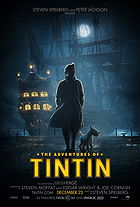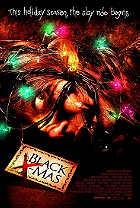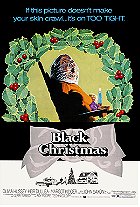Posted : 13 years, 4 months ago on 22 December 2011 05:27
(A review of
"The president has initiated Ghost Protocol. The entire IMF has been disavowed..." The
Mission: Impossible film franchise may be fifteen years old now, and 2011's
Mission: Impossible - Ghost Protocol may be the fourth instalment in this series, but no trace of exhaustion or lethargy is showing through just yet. What began as a merely good action brand has now become something genuinely special, with 2006's wildly underrated
Mission: Impossible III and now
Ghost Protocol bringing the franchise to an all-time high. Well-written and stunningly well-made, this fourth
Mission: Impossible is a sleek and enjoyable treat. It also denotes the live-action debut for animation specialist Brad Bird (
The Iron Giant,
The Incredibles), who easily puts veterans like Michael Bay to shame in his construction of some of the most breathtaking, armrest-clenching, thrilling action sequences of the year.

After being broken out of a Moscow prison, Ethan Hunt (Tom Cruise) is united with fellow IMF agents June Carter (Paula Patton) and Benji Dunn (Simon Pegg), and offered his newest assignment to retrieve valuable information from within the Kremlin. The mission is abruptly cut short, though, when the site is bombed, leaving the relationship between Russia and America in absolute tatters. With the IMF shouldering the blame for the bombing, a contingency plan known as the "Ghost Protocol" is put into effect, disavowing the IMF. In the event of Hunt or his fellow agents being captured, they would be branded as terrorists and prosecuted accordingly. To clear their names and hopefully prevent World War III, Hunt and his team - who are soon joined by analyst William Brandt (Jeremy Renner) - begin to pursue extremist Kurt Hendricks (Michael Nyqvist), who's working to obtain Russian nuclear launch codes.
Minus the more logical title of Mission: Impossible IV, and with only two returning actors, rumours surfaced that Ghost Protocol was going to be a series reboot of sorts. Luckily, writers Josh Appelbaum and André Nemec do not take such unnecessary measures. While the first two M:I instalments are never explicitly referenced, one critical subplot is intrinsically tied to Mission: Impossible III and a couple of surprise cameos reinforce series continuity.

Like its immediate predecessor, Ghost Protocol moves at the speed of a bullet. The picture clocks in at a massive 130 minutes, yet the pacing is extraordinarily quick. The film is adrenalized from the very outset - the pitch-perfect opening involves an exciting shootout followed by a brilliant prison riot-come-escape (accompanied by Dean Martin's song "Ain't That a Kick in the Head") and an exhilarating title sequence set to the classic series theme. From there, it moves fast and never lags. However, the protagonists should have been better developed, and it's a shame that we don't get to know them better (Benji, in particular, could use more development). Mission: Impossible III was afforded a human touch by focusing on Ethan's personal life and relationship with Julia, but such nuances are lacking here. On the other hand, there are enough small character moments and clever humour beats to allow us to at least like the people being caught up in the hail of bullets and bombs.
The Mission: Impossible films have undergone a change in director with each new outing, leading to a welcome shift in aesthetic approaches. In theory, Brad Bird was an odd choice to helm this new adventure, but he easily surpasses his predecessors in terms of technique and excitement. Bird clearly strived to achieve most of the action practically with stunt work, and such an approach is a huge benefit. It's easier to become immersed in Ghost Protocol's action when it genuinely looks like Ethan is perilously scaling the world's tallest buildings with flawed gizmos. Indeed, the much-publicised Burj Khalifa climbing sequence is perhaps the most heart-stopping action set-piece of 2011. (It was filmed with IMAX cameras, too, and the results are phenomenal.) Bird and cinematographer Robert Elswit also predominantly eschew an irritating shaky-cam approach in favour of something smoother, steadier and crisper. Coupled with the precise editing and Michael Giacchino's intense score, the action is coherent, fluid, exhilarating and nail-biting. It's unlikely that these characters will ever find themselves in fatalistic danger, but Bird constantly teases such possibilities to keep us on the edge of our seats as he keeps upping the stakes (Ethan's showdown with Hendricks is a humdinger).

Admittedly, though, some of the action sequences are a bit too over-the-top, and a few scenes are hindered by rocky digital effects (the missile launch looks rather phoney). Not to mention, Ethan should have broken several bones (and his fucking skull) during his adventures here, making a suspension of disbelief a requirement to fully enjoy the action. Such Hollywood touches somewhat weaken the intensity, yet this is only a minor complaint since the flick's fun factor is consistently off the charts.
Tom Cruise may be getting old (he was forty-nine during filming), but the star is in great shape and looks to be aging gracefully. On top of this, Cruise still throws himself into every scene, every line and every action, believably delivering dialogue and performing various daredevil stunts without a double. Hate Cruise for his tabloid-fodder personal life, if you will, but you cannot deny that this guy is a terrific movie star. Fortunately, Cruise is surrounded by a stellar supporting cast here. The role of Brandt was apparently shoehorned into the script to give Ethan an equal since the studio was weary of Cruise's profitability after Knight & Day flopped, yet Brandt feels like an organic part of the narrative with a pivotal role in the mission. It helps that Jeremy Renner is so good here, too, oozing charisma and assuredly handling the action elements. Meanwhile, Simon Pegg shows up here to reprise his role from the third film. Pegg is essentially the comic relief, and he handled such duties skilfully. Unfortunately, however, Ghost Protocol is without a proper villain. Mission: Impossible III boasted a magnificently monstrous Philip Seymour Hoffman, but Ghost Protocol is less successful in this respect.

As opposed to most blockbusters, Mission: Impossible - Ghost Protocol's action sequences do not feel forced; they unfold organically within the fabric of the narrative. Additionally, this is a PG-13 action movie, yet it never feels like Bird is pulling any punches. When people are shot, wounds are visible, and there is blood. As a result, Ghost Protocol doesn't feel unrealistically sanitised. Indeed, it's surprising how solid this movie is. It's not Oscar bait (though it deserves recognition in various technical categories), but it is an exceptionally-crafted, balls-to-the-wall popcorn actioner that's far better than anything Michael Bay has done in the last 5 years. Alongside Fast Five, Ghost Protocol is one of the big-budget studio-produced highlights of 2011.
7.8/10


 Login
Login
 Home
Home 183 Lists
183 Lists 1662 Reviews
1662 Reviews Collections
Collections
 0 comments,
0 comments, 
































